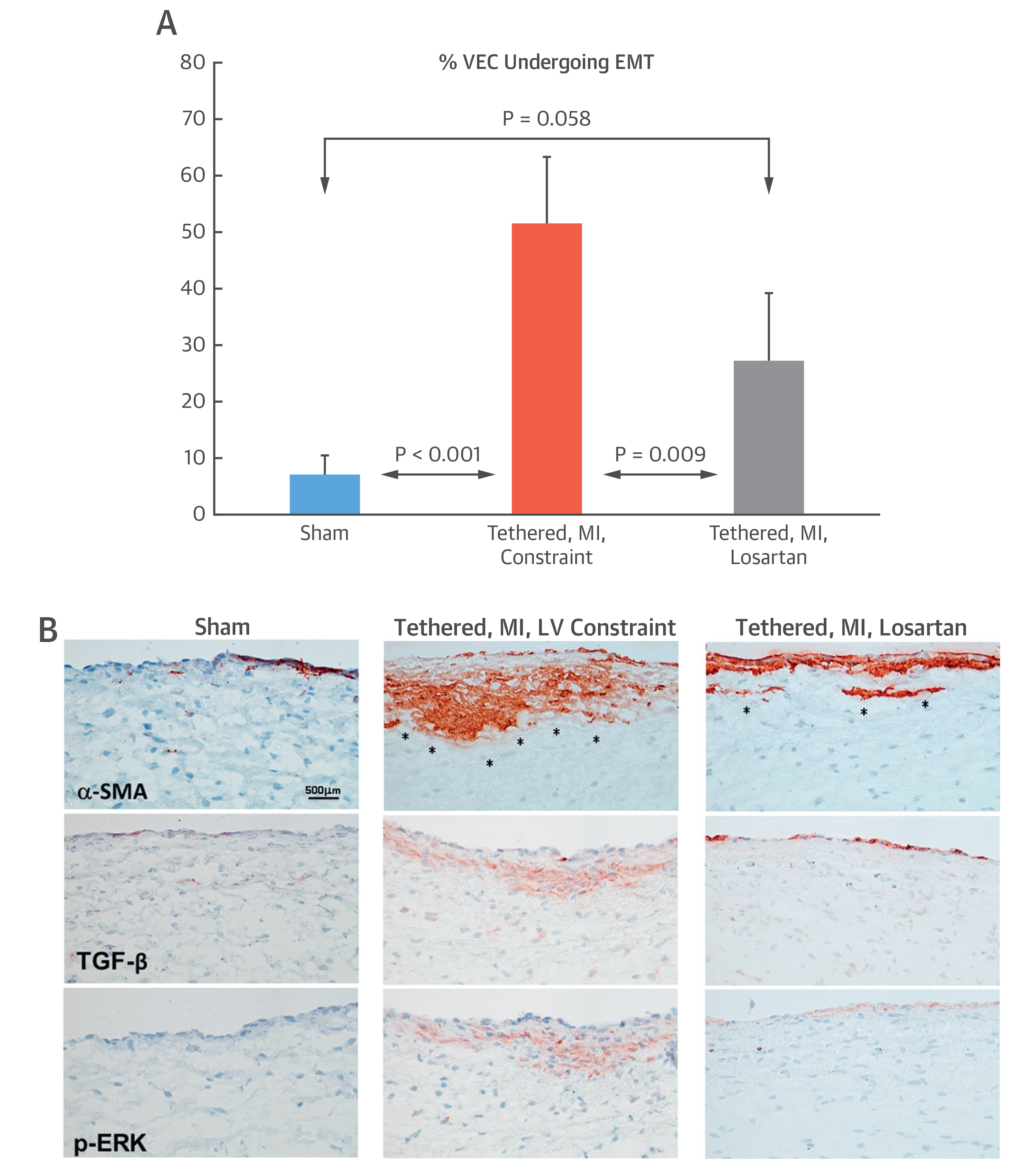We study endothelial plasticity in cardiac valves and how this relates to the ability of valves to adapt to both normal and pathologic events. We showed that valve endothelial cells (VECs) from aortic, pulmonic and mitral valves can recapitulate processes that occur during valve development - e.g. endothelial to mesenchymal transition (EndMT). We propose that the EndMT-competent cells along the valve endothelium are valve progenitor cells and that their job is replenish the valve interstitial cells on an as-needed basis throughout adult life and possibly during valve disease.
Together with our collaborators Drs. Levine and Aikawa, we are investigating EndMT in the mitral valve after myocardial infarction (MI) - in sheep - to determine the extent to which EndMT might be part of the adaptative mechanism to limit mitral regurgitation after MI. Our recent paper (Circ Res 2016) shows that the protein tyrosine phosphatase CD45 is expressed in vivo in mitral valve endothelial cells after MI. In vitro experiments demonstrate that CD45 phosphatase is needed for mitral valve endothelial cells to undergo EndMT. This novel discovery indicates that CD45 is an important regulator of EndMT. We also showed recently (Bartko, Dal-Bianco et al, JACC, 2017 ) that Losartan, an indirect inhibitor of TGFbeta signaling, diminishes EndMT after MI (see below).
We have three major goals in this project. The first is to determine the extent to which valve endothelial cells contribute, directly or indirectly, to valve fibrosis. The second is to identify up and downstream targets of CD45 in valve endothelial cells. Our third goal is to determine if CD45 participates in other settings of pathological EndMT.
